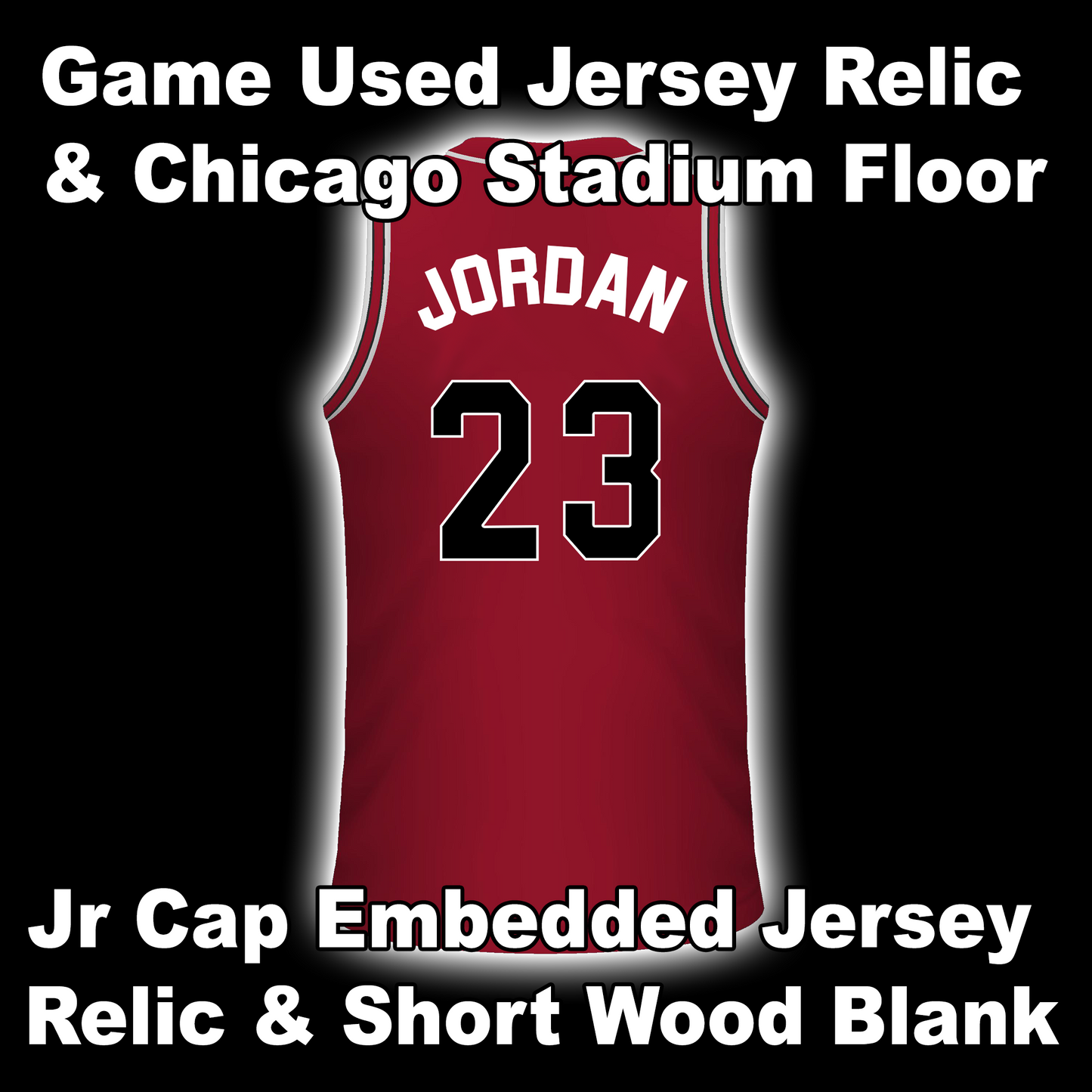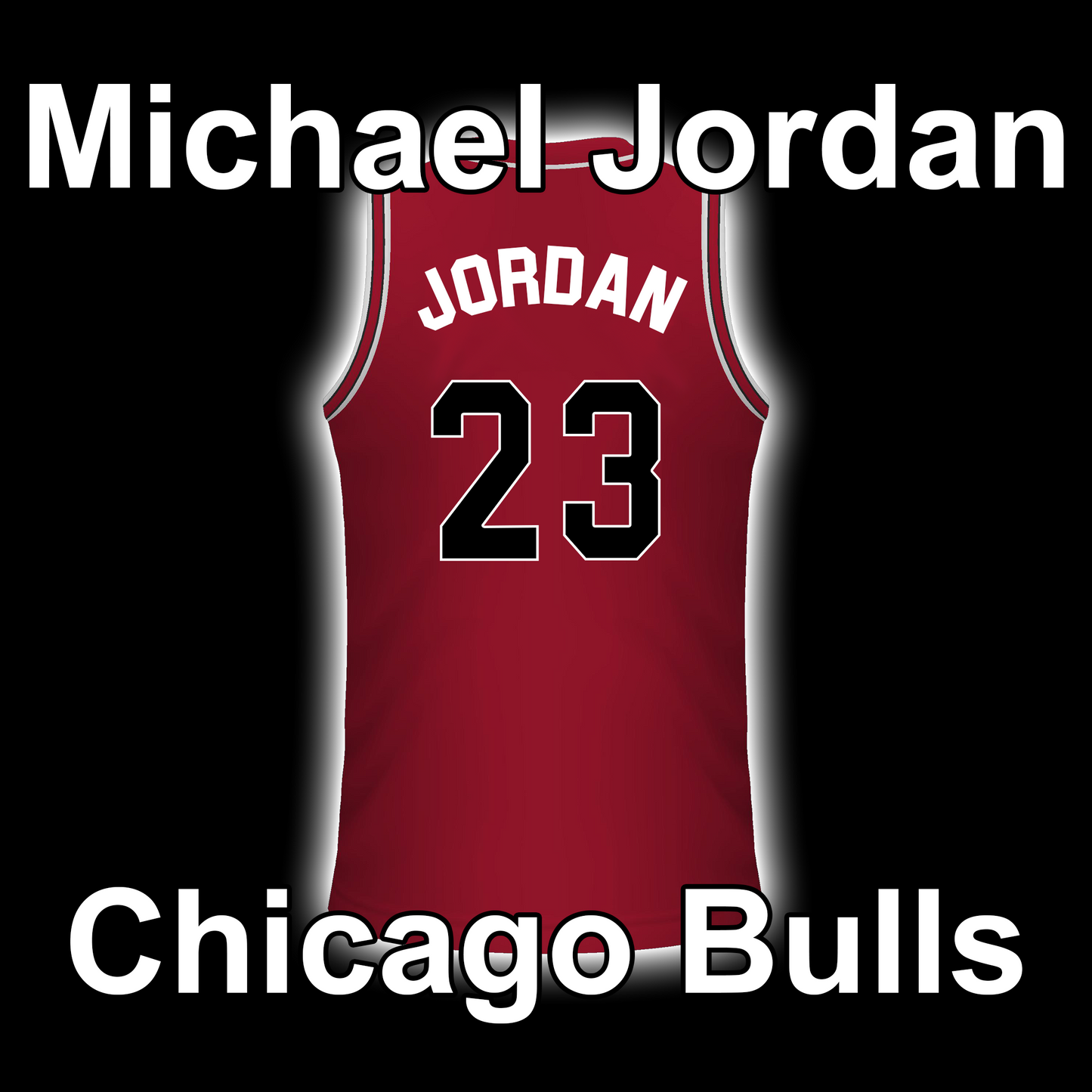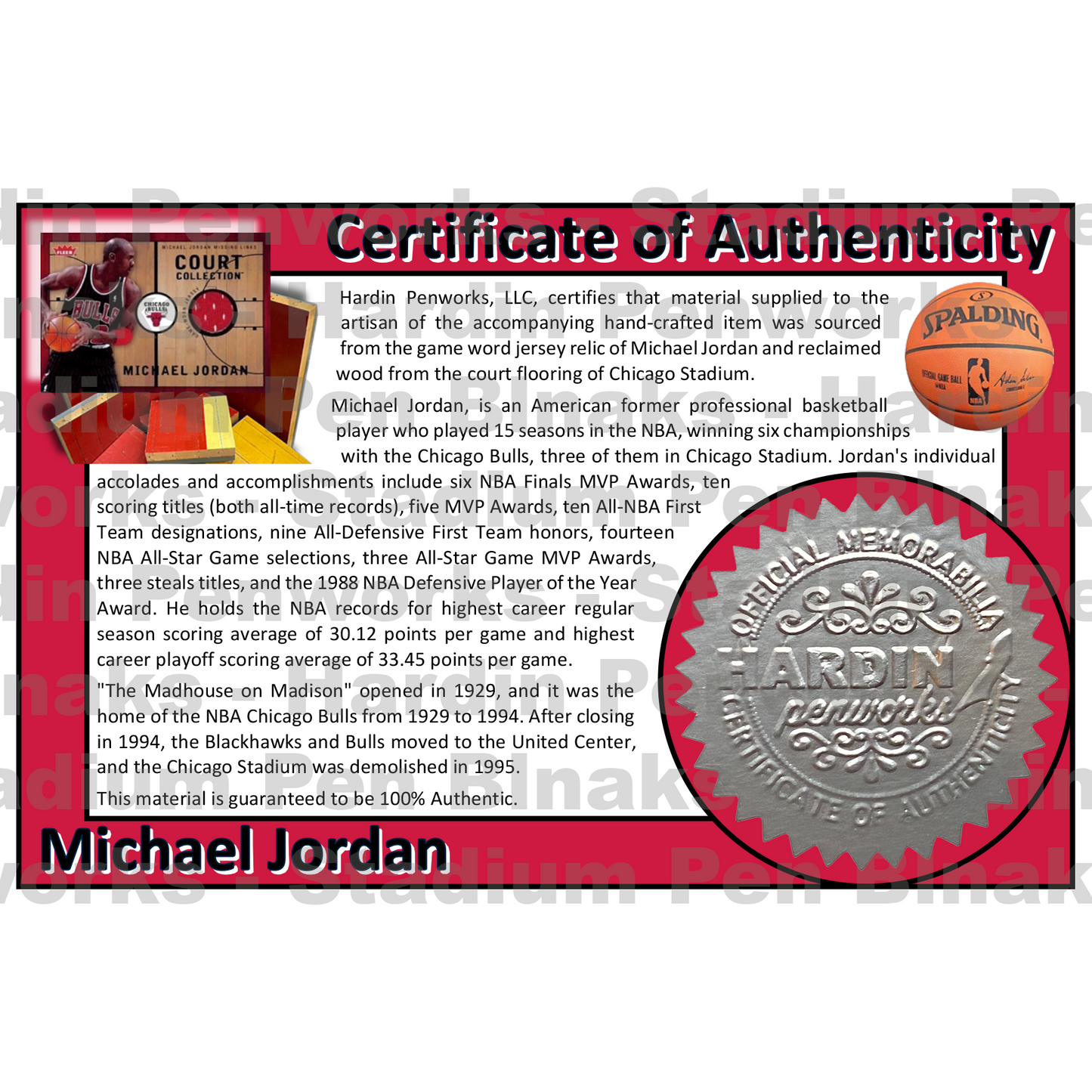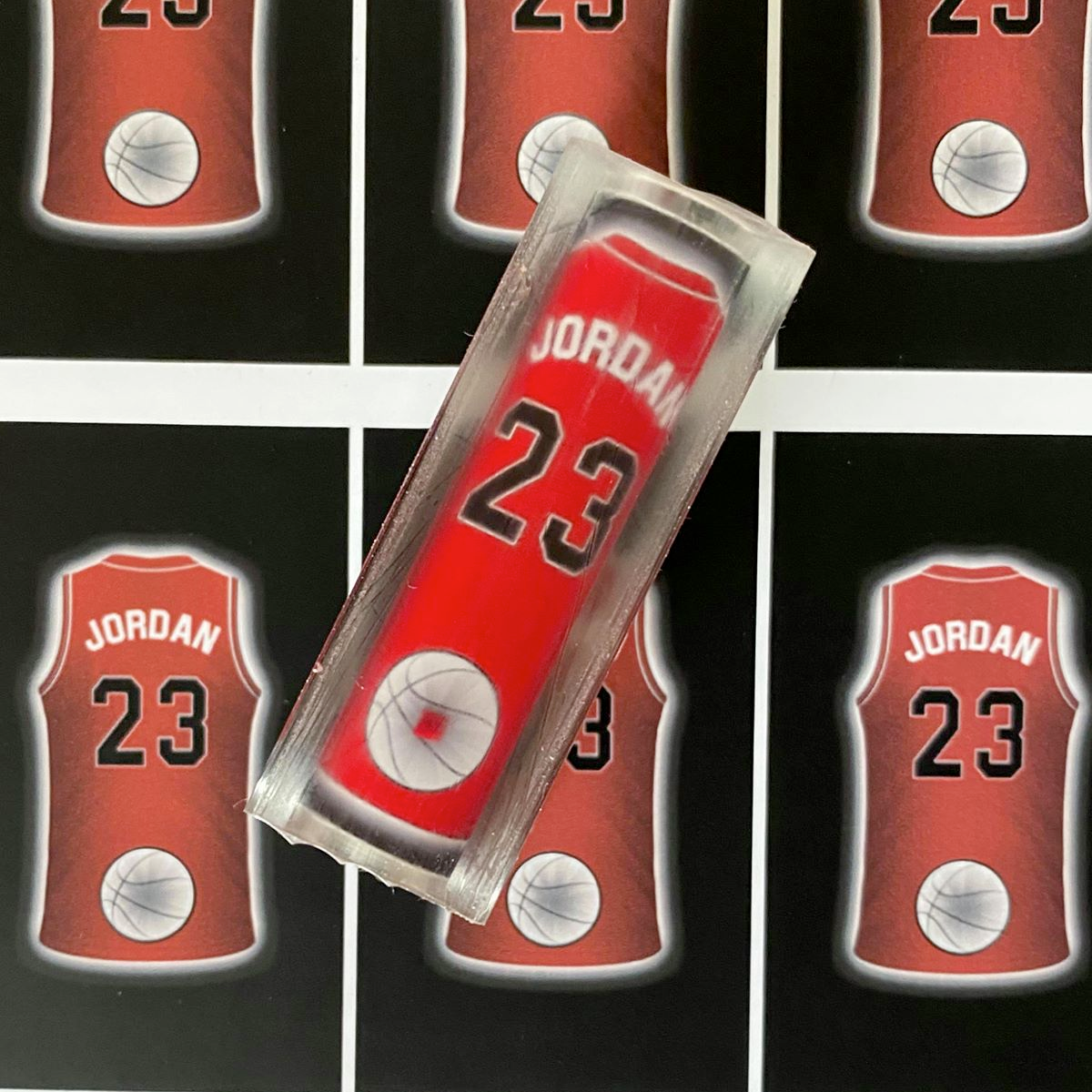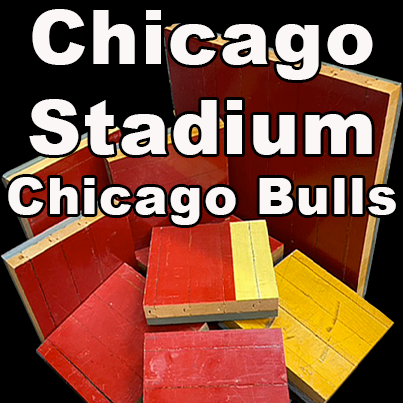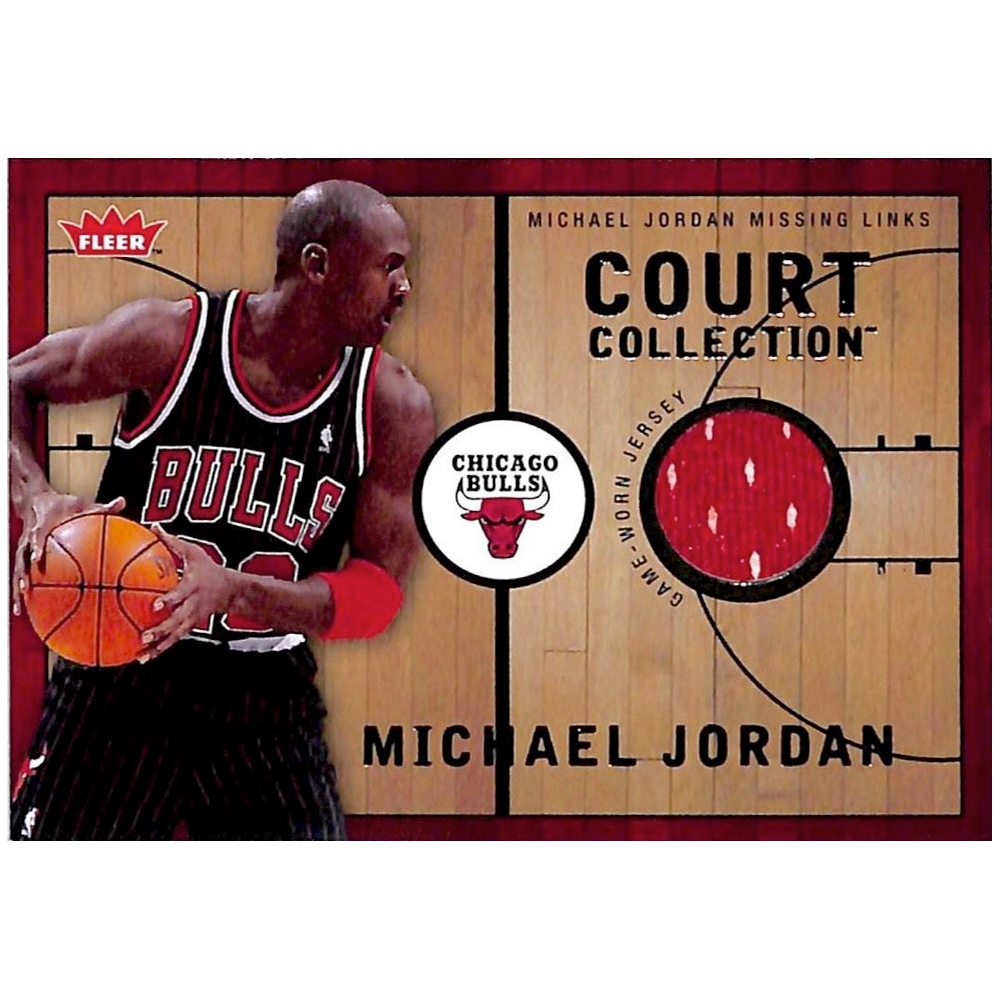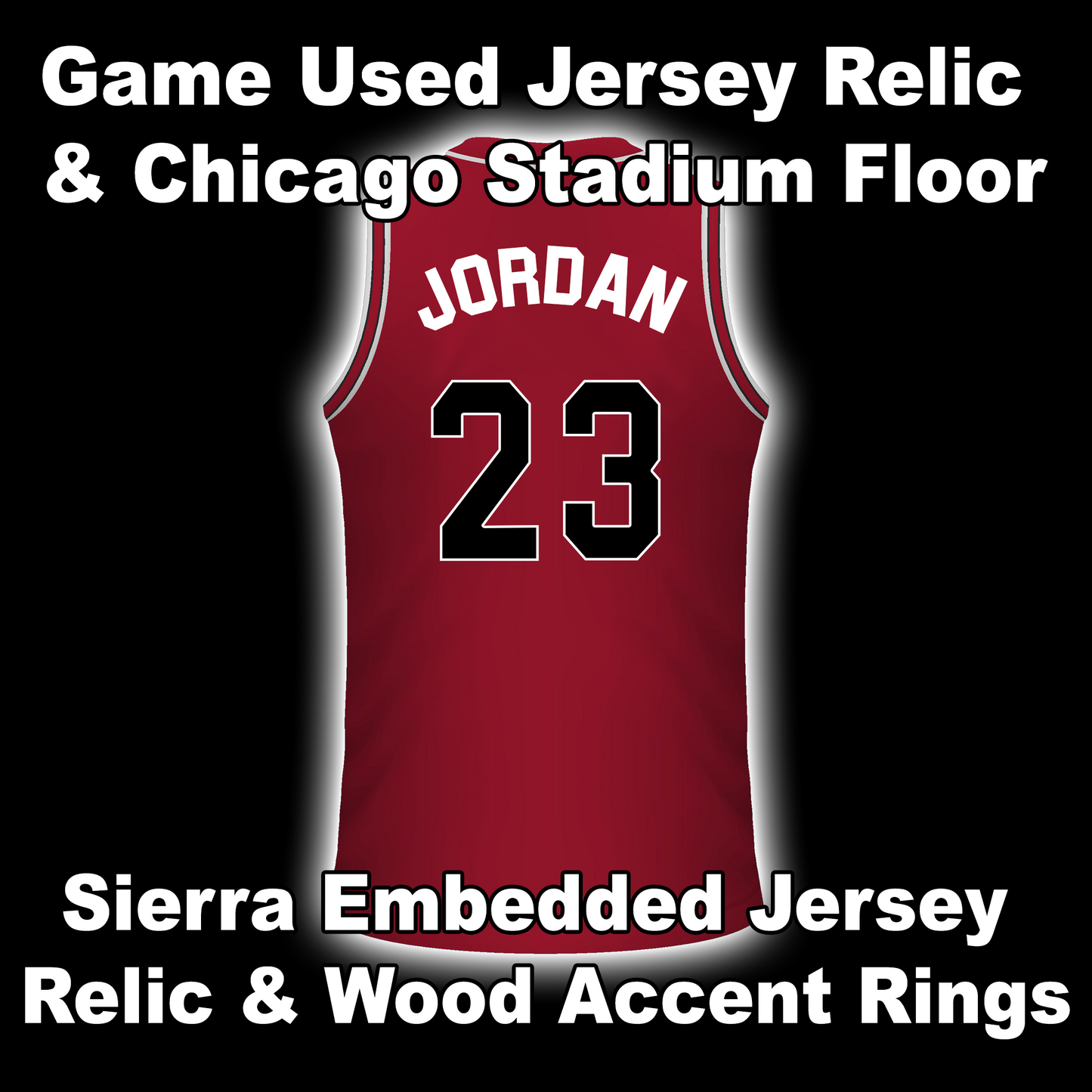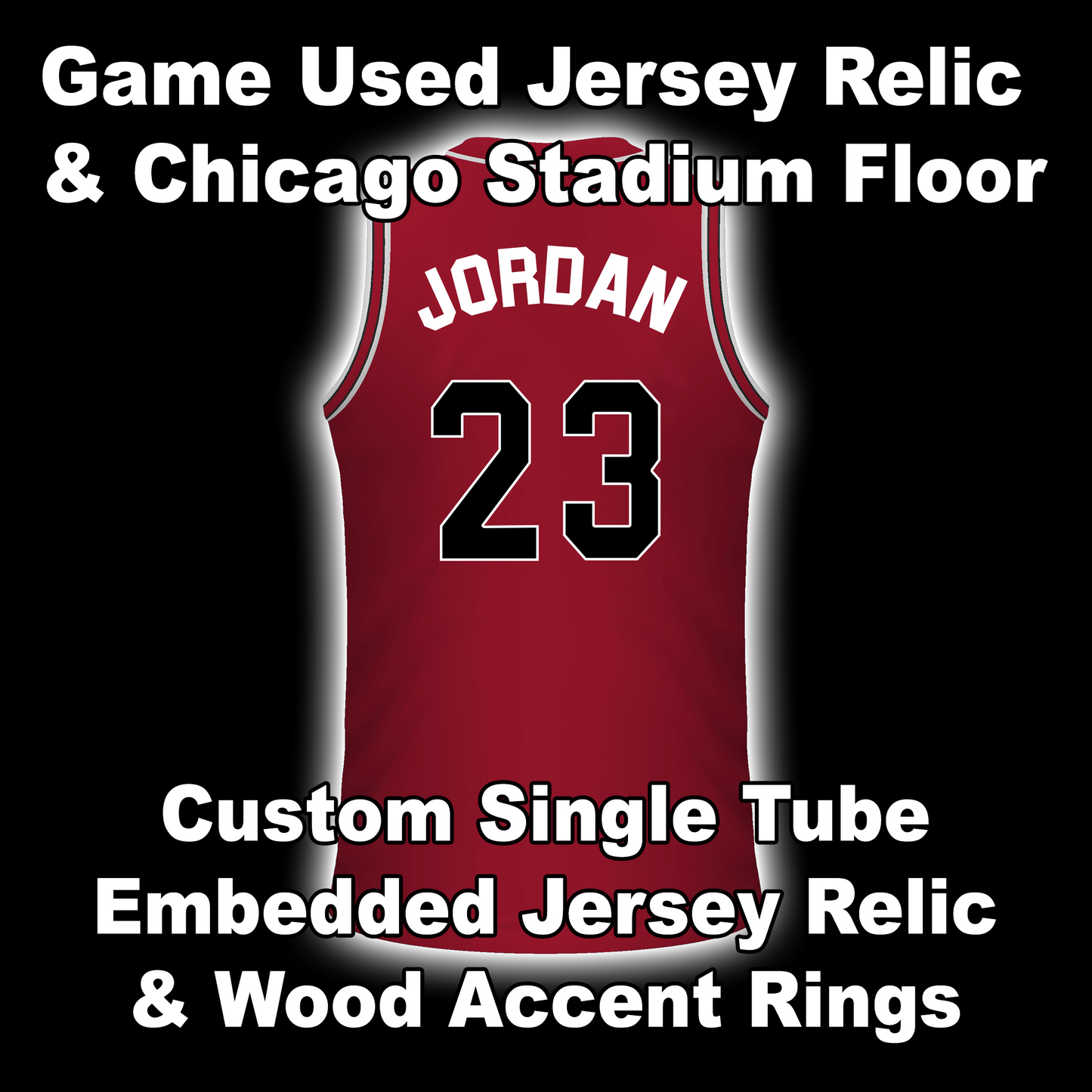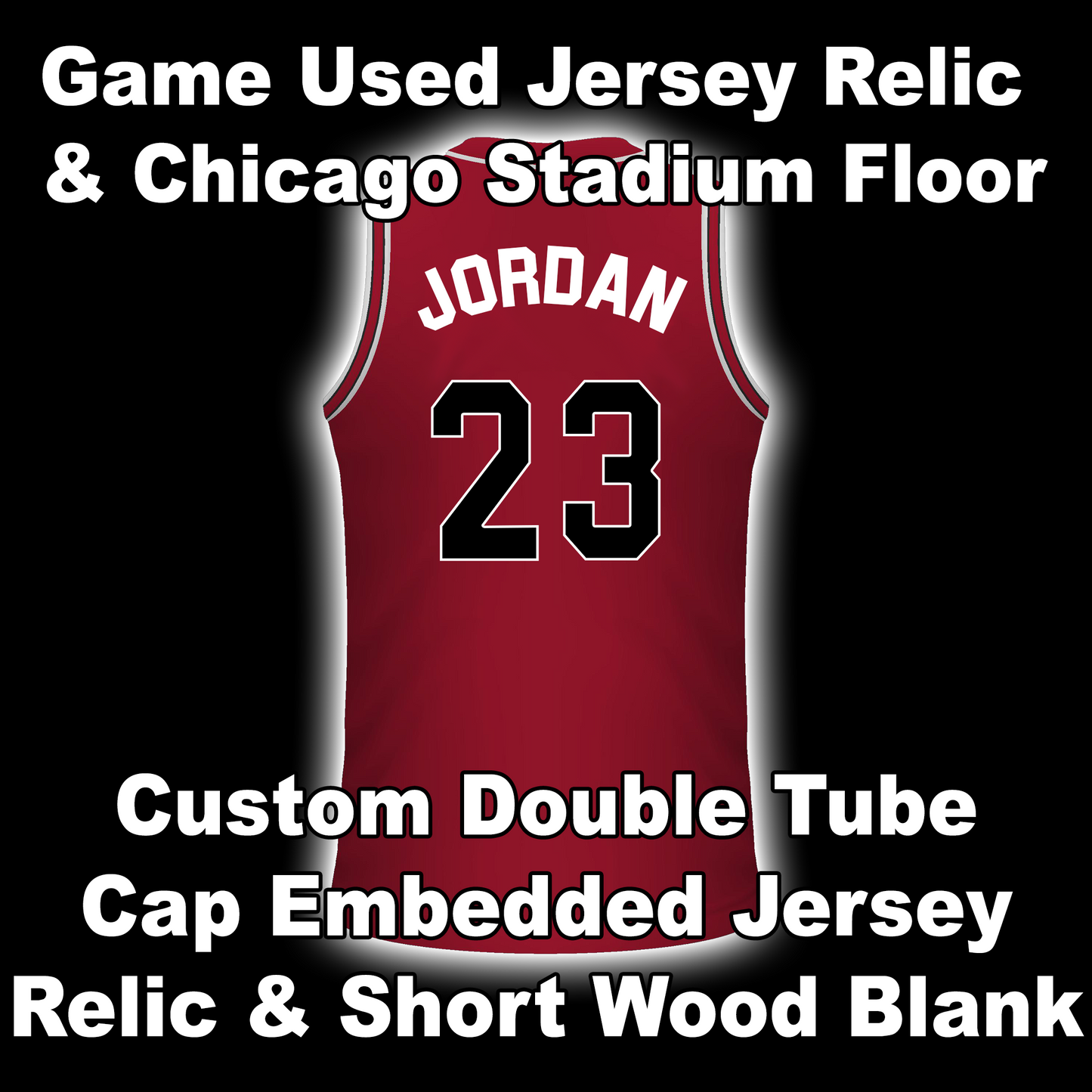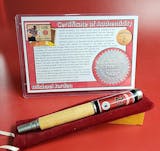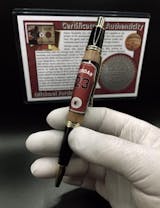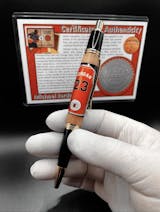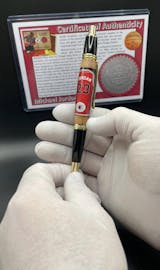Jordan, Michael #23 - Game Played Relic
Jordan, Michael #23 - Game Played Relic
5.0 / 5.0
(4) 4 total reviews
Prodcut Base price with no add-on options
In stock
Product Price with any add-on options selected
Couldn't load pickup availability
These blanks contain game used jersey from His Airness, Michael Jordan & Chicago Stadium basketball court flooring. The blanks are label cast embedded JR Caps paired with wooden short blanks.
The jersey relic was pulled from a collector card with certified game played jersey swatch from Michael Jordan's Chicago Bulls uniform. The wood is from basketball court flooring used in the last basketball seasons of the Chicago Stadium where the Chicago Bulls pulled off their first Three-peat winning their first three Conference and NBA championships with Michael Jordan.
Michael Jeffrey Jordan, also known by his initials MJ, is an American former professional basketball player and the principal owner of the Charlotte Hornets of the NBA. He played 15 seasons in the NBA, winning six championships with the Chicago Bulls. His biography on the official NBA website states: "By acclamation, Michael Jordan is the greatest basketball player of all time." He was one of the most effectively marketed athletes of his generation and was considered instrumental in popularizing the NBA around the world in the 1980s and 1990s.
Jordan played three seasons for coach Dean Smith with the North Carolina Tar Heels. As a freshman, he was a member of the Tar Heels' national championship team in 1982. Jordan joined the Bulls in 1984 as the third overall draft pick, and quickly emerged as a league star and entertained crowds with his prolific scoring. His leaping ability, demonstrated by performing slam dunks from the free throw line in Slam Dunk Contests, earned him the nicknames "Air Jordan" and "His Airness". He also gained a reputation for being one of the best defensive players in basketball. In 1991, he won his first NBA championship with the Bulls, and followed that achievement with titles in 1992 and 1993, securing a "three-peat". Although Jordan abruptly retired from basketball before the 1993–94 NBA season and started a new career in Minor League Baseball, he returned to the Bulls in March 1995 and led them to three additional championships in 1996, 1997, and 1998, as well as a then-record 72 regular-season wins in the 1995–96 NBA season. He retired for a second time in January 1999 but returned for two more NBA seasons from 2001 to 2003 as a member of the Washington Wizards.
Jordan's individual accolades and accomplishments include six NBA Finals Most Valuable Player (MVP) Awards, ten scoring titles (both all-time records), five MVP Awards, ten All-NBA First Team designations, nine All-Defensive First Team honors, fourteen NBA All-Star Game selections, three All-Star Game MVP Awards, three steals titles, and the 1988 NBA Defensive Player of the Year Award. He holds the NBA records for highest career regular season scoring average (30.12 points per game) and highest career playoff scoring average (33.45 points per game). In 1999, he was named the greatest North American athlete of the 20th century by ESPN, and was second to Babe Ruth on the Associated Press' list of athletes of the century. Jordan is a two-time inductee into the Naismith Memorial Basketball Hall of Fame, having been enshrined in 2009 for his individual career and again in 2010 as part of the group induction of the 1992 United States men's Olympic basketball team ("The Dream Team"). He became a member of the FIBA Hall of Fame in 2015.
Chicago Stadium was an indoor arena located in Chicago, Illinois that opened in 1929 and closed in 1994. It was the home of the National Hockey League's Chicago Blackhawks and the National Basketball Association's Chicago Bulls.
In addition to the close-quartered, triple-tiered, boxy layout of the building, much of the loud, ringing noise of the fans could be attributed to the fabled 3,663-pipe Barton organ, boasting the world's largest theater organ console with 6 manuals (keyboards) and over 800 stops, and played by Al Melgard. Melgard played for decades during hockey games there, earning the Stadium the moniker "The Madhouse on Madison". For years, it was also known as "The Loudest Arena in the NBA", due to its barn-shaped features.
In the Stanley Cup semifinals of 1971, when the Blackhawks scored a series-clinching empty-net goal in Game 7 against the New York Rangers, CBS announcer Dan Kelly reported, "I can feel our broadcast booth shaking! That's the kind of place Chicago Stadium is right now!" The dressing rooms at the Stadium were placed underneath the seats, and the cramped corridor that led to the ice, with its twenty-two steps, became the stuff of legend. Legend has it a German Shepherd wandered the bowels at night as "the security team."
In the 1973 Stanley Cup Final against Montreal, Chicago owner Bill Wirtz had the NHL's first goal horn installed in the building, reportedly because he liked the sound of the horn on his yacht. This practice would, in the ensuing years, become almost commonplace in professional hockey.
Nancy Faust, organist for 40 years at Chicago White Sox games, also played indoors at the Stadium, at courtside for Chicago Bulls home games from 1976-84, and on the pipe organ for Chicago Blackhawks hockey there from 1985-89.
It also became traditional for Blackhawk fans to cheer loudly throughout the singing of the national anthems, especially when sung by Chicago favorite Wayne Messmer. Denizens of the second balcony often added sparklers and flags to the occasion. Arguably, the most memorable of these was the singing before the 1991 NHL All-Star Game, which took place during the Gulf War. This tradition has continued at the United Center. Longtime PA announcer Harvey Wittenberg had a unique monotone style: "Blackhawk goal scored by #9, Bobby Hull, unassisted, at 6:13."
In 1992, both the Blackhawks and the Bulls reached the finals in their respective leagues. The Blackhawks were swept in their finals by the Pittsburgh Penguins, losing at Chicago Stadium, while the Bulls won the second of their first of three straight NBA titles on their home floor against the Portland Trail Blazers. The next time the Bulls clinched the championship at home, was in the newly built United Center in 1996 (when they did so against the Seattle SuperSonics), their second season at the new arena, and the Blackhawks would not reach the Stanley Cup Finals again until 2010 (in which they defeated the Philadelphia Flyers in six games), their 16th season in the new building, although they won their first championship since 1961 in Philadelphia. The Blackhawks last won the Stanley Cup at the Stadium in 1938; they did not win the Cup again at home until 2015 at the United Center.
Share
